What Happens To Your Body When You Eat Seeds
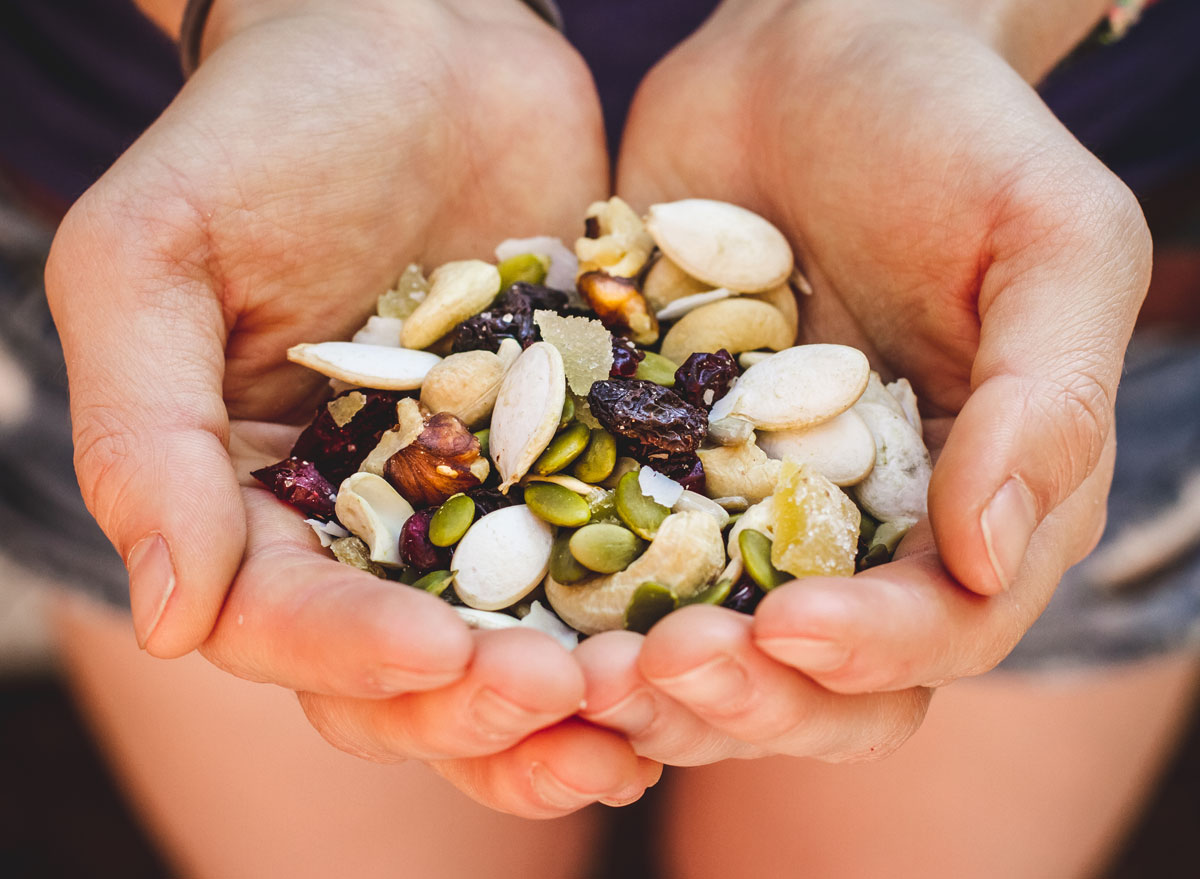
You know that nuts are a healthy snack, but what about seeds? Do they get as much love as their nuttier counterpart? They definitely should, because seeds comprise healthy monounsaturated and polyunsaturated fats, which are beneficial for both your heart and your waistline—especially when they’re in the place of saturated fats. In addition, when you eat seeds, they boast a lot of key vitamins and minerals, including vitamin B1 and manganese.
Below, we outline just five of the many benefits your body could receive if you love to eat all different kinds of seeds. And for more, check out The 7 Healthiest Foods to Eat Right Now.
They can reduce inflammation.
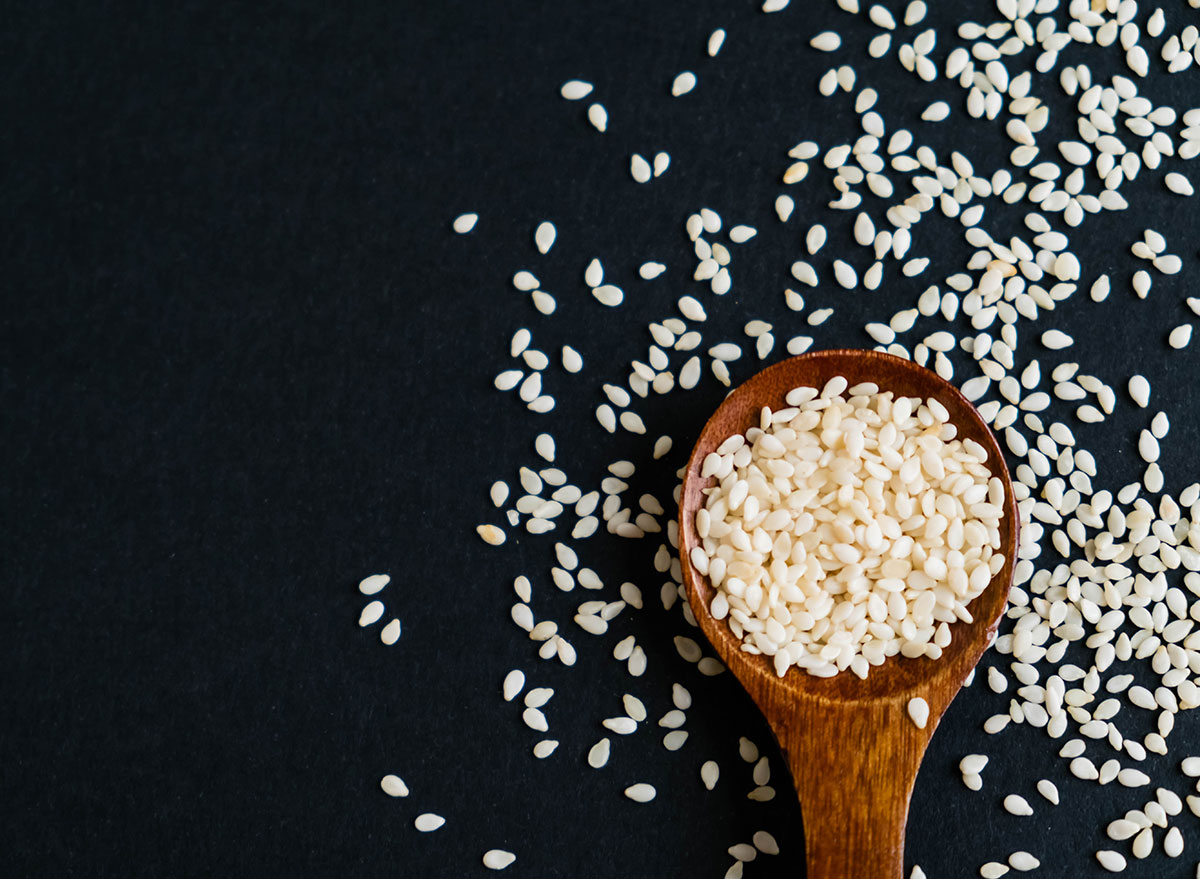
If you like sesame seeds, you’re in luck. As it turns out, those little seeds pack quite a few anti-inflammatory properties. Sesame seeds contain polyphenols known as lignans, which act as antioxidants in the body. This is important because antioxidants work to reduce inflammation and oxidative stress, both of which are known to worsen symptoms of various disorders and diseases.
For example, one 2015 study showed that people with knee osteoarthritis had much fewer chemicals associated with inflammation in their blood after eating roughly 40 grams of sesame seed powder every day for two months. Whether you sprinkle sesame seeds onto your salad or put tahini (a paste made from sesame seeds) on your rice and vegetable dish, know that you may be stopping inflammation in its tracks.
Here’s Why You Need Antioxidants In Your Diet—And How To Eat More Of Them.
They can lower cholesterol levels.
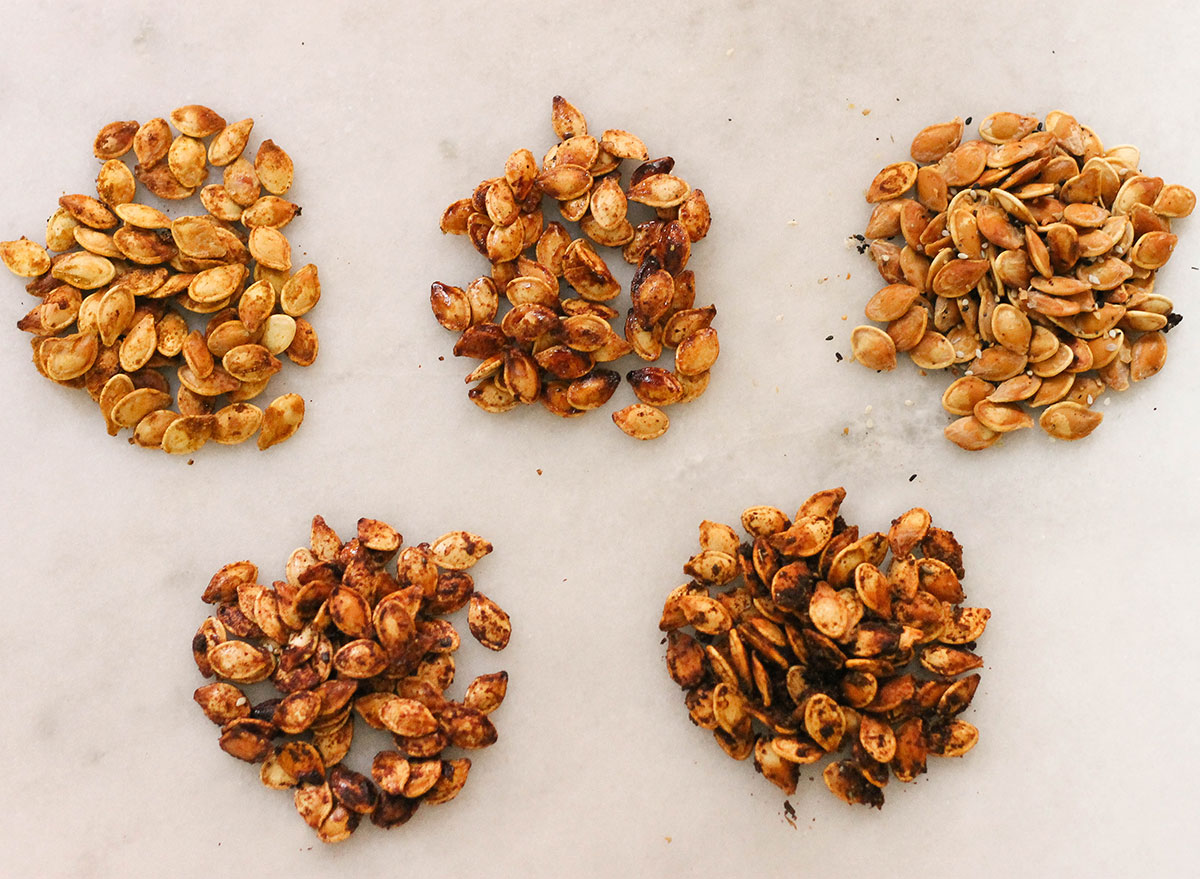
Roasted pumpkin seeds are a delicious snack, especially when you season them with curry, cinnamon sugar, pumpkin spice, and yes—even taco seasoning! Aside from their flavor, another reason to reach for these seeds is for their ability to help keep your cholesterol levels in check. These nutty seeds are home to several phytosterols, aka plant compounds that may assist in lowering harmful cholesterol levels known as LDL.
Here’s How to Roast Pumpkin Seeds For the Perfect Snack.
They can help manage blood pressure levels.
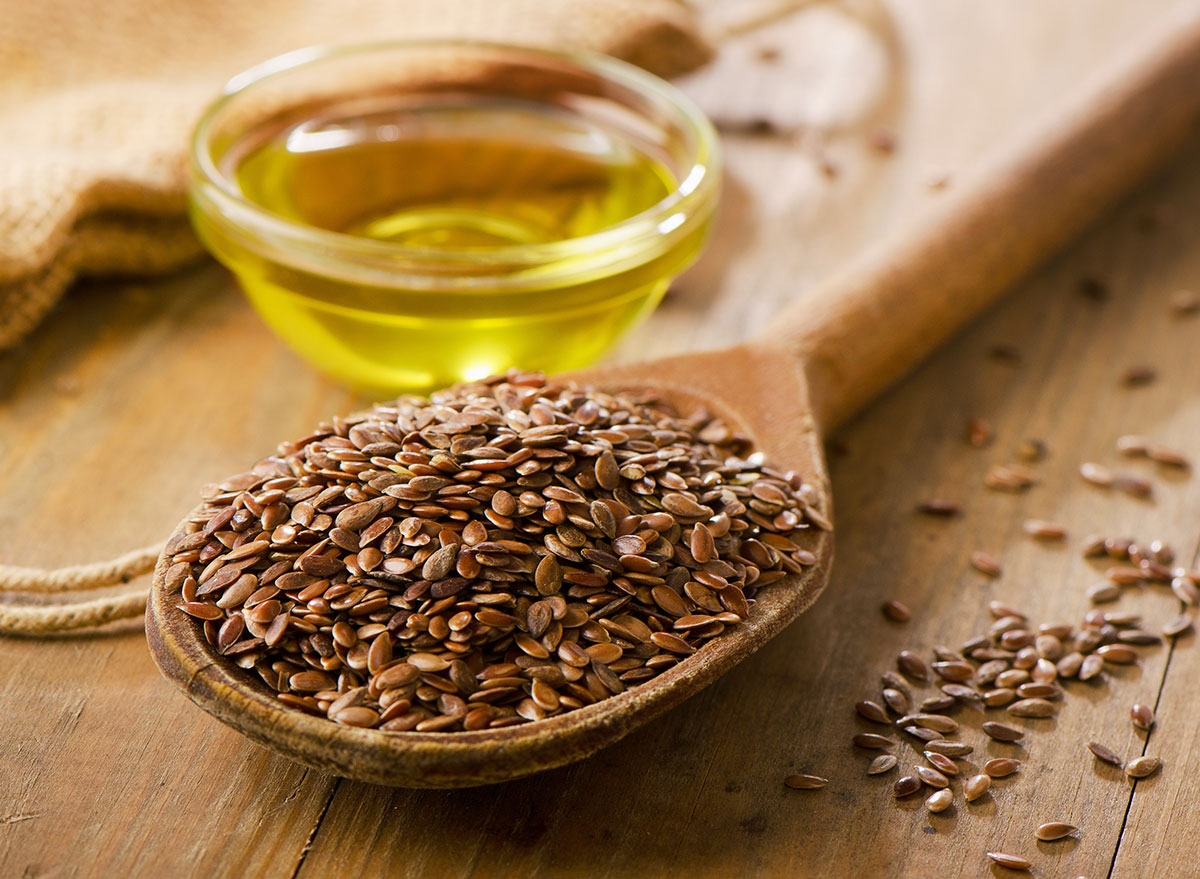
Like pumpkin seeds, flaxseeds have also been shown to lower bad cholesterol levels, which may in part be attributable to their high fiber and omega-3 fatty acid contents. Flaxseeds may also play a role in lowering high blood pressure levels. For example, an analysis of 11 studies found that, when eaten whole every day for more than 12 weeks, flaxseeds could slightly reduce blood pressure levels.
Of course, other factors such as eating less red meat and high-in-sodium foods as well as exercising more could all be more effective ways of managing your blood pressure levels. In some cases, people even need medication to help get their blood pressure levels in a healthy range. In the interim, why not add some flaxseeds to your morning bowl of oatmeal?
For more, be sure to check out Dangerous Side Effects of Having High Blood Pressure.
They can keep you regular.

All seeds are generally good sources of dietary fiber, and since fiber isn’t digested or absorbed by the body, it passes straight through your stomach to the small intestine and eventually your colon. Chia seeds are especially loaded in fiber, with just one ounce containing nearly 11 grams of fiber. According to the American Heart Association, the daily value for fiber is 25 grams. However, men under the age of 50 are encouraged to consume a bit more than this, specifically between 30 to 38 grams of fiber each day.
Another plug about chia seeds? They contain soluble fiber meaning that once they’re in the presence of water, they form a gel-like substance in the gastrointestinal tract. This can then help to soften stool and ultimately make it much easier to pass.
They’ll keep you full.
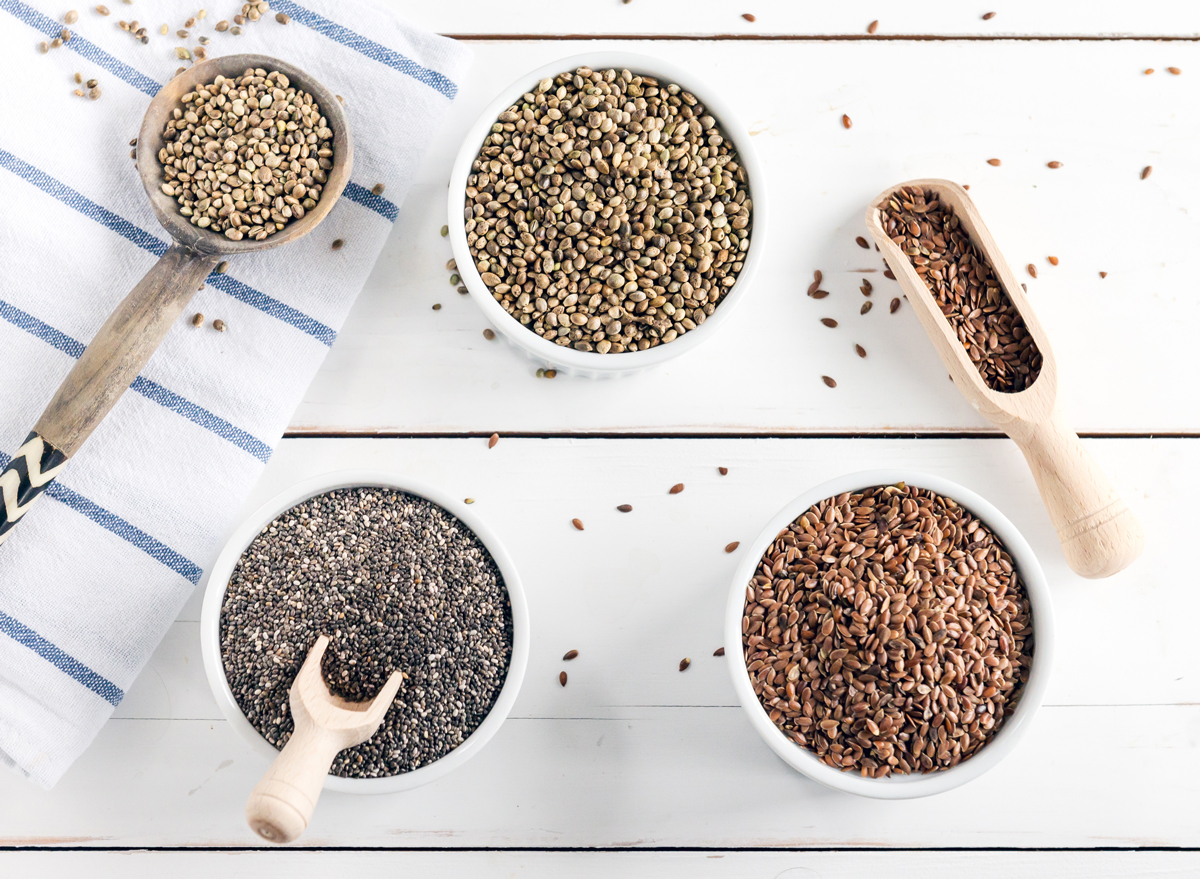
In addition to being great sources of dietary fiber, all seeds are rich in healthful fats and pack quite a bit of protein—all of which help to keep you feeling satiated.
For more, be sure to check out What Happens to Your Body When You Eat Nuts, Says Expert.